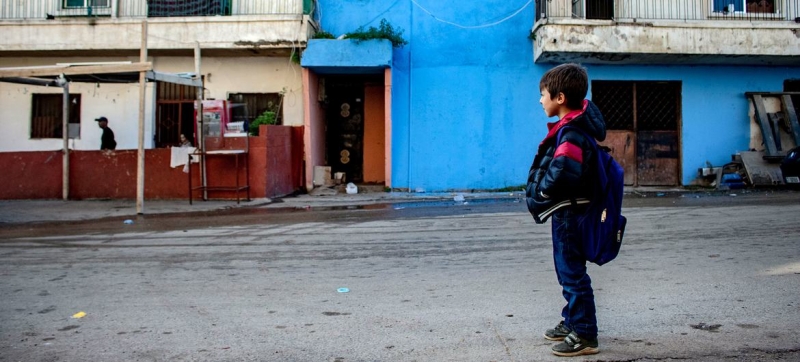
A boy in the Libyan capital Tripoli. Top news of the day | Tuesday: Ukraine, monkeypox, Libya, Iran UN
Top news of the day in the UN and in the world: attack on the transit center in the Ukrainian Pokrovsk, monkeypox in Europe, political instability in Libya, denial of medical care to Iranian prisoners.
Escalation in Donetsk region
Commenting on the strike by Russian armed forces on a transit center in Pokrovsk, Donetsk region of Ukraine, the UN humanitarian coordinator in the country, Matthias Schmale, condemned the attack and recalled the need to respect international humanitarian law. The new UN coordinator took up his duties just over a week ago, replacing Denise Brown. The UN Office for the Coordination of Humanitarian Affairs (OCHA) said that the escalation of hostilities in the Donetsk region continues to lead to civilian casualties and displacement. Humanitarian workers have mobilized emergency assistance to those affected.
Monkeypox Outbreak
European governments must demonstrate strong political commitment to ending the monkeypox outbreak, while showing solidarity with Africa. This was stated by the World Health Organization (WHO) regional director for Europe, Hans Kluge, who rejected comparisons between the fast-spreading viral disease, which the agency declared an “international public health emergency” last week, and the COVID-19 pandemic. When asked whether restrictions similar to those in place during the COVID-19 pandemic would be introduced in Europe, the WHO representative gave a clear “no.”
The situation in Libya
Over the past two months, the situation in Libya has worsened in terms of political, economic and security stability. This was stated at a meeting of the UN Security Council by Deputy Special Representative for Libya Stephanie Koury. She also recalled that on August 16, flooding occurred in southwestern Libya, as a result of which about 5,800 people were forced to flee their homes. The speaker emphasized that since the beginning of hostilities in Sudan, the number of Sudanese refugees in the country has increased to 97 thousand as of August 11. At the same time, according to her, donors have provided only 21 percent of the funds needed for efforts to help Sudanese refugees in Libya.
Prisoners in Iran
UN human rights experts today expressed alarm at the fact that Iran continues to deny human rights defender Narges Mohammadi and other detainees access to timely and adequate medical care, despite repeated appeals to the country’s authorities. They pointed to a pattern of ill-treatment of Iranian detainees, including denial of access to medical services. Prisoners have a right to health care available to other members of the community, the experts said.
